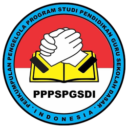KENDALA PENERAPAN PEMBELAJARAN TEMATIK DI KELAS RENDAH SEKOLAH DASAR
DOI:
https://doi.org/10.21009/PIP.282.6Keywords:
constraints, the application of thematic learning, the lower gradesAbstract
Based on the curriculum of the unit level of education or school-based curriculum (KTSP), the thematic earning is designed to be implemented at the lower grades of primary school, namely grade 1, 2, and 3. However, in the Curriculum of 2013 the thematic learning is designed to be applied at all grades from 1st grade to the 6th grade, and even at the higher school levels. The purpose of this study was to describe the constraints faced by the lower grade elementary school teachers in developing the lesson plans, selecting the media, and deciding on the use of the appropriate thematic learning methods. Moreover, this study was to describe the constraints in implementing the thematic learning in the lower grade classrooms. The subjects of this qualitative research were lower grade teachers of elementary school in Bangka Belitung province. The data were collected through questionnaires, interviews, observation, and review of lesson plan documents formulated by the teachers. The results showed, the constraints experienced by the teachers included the difficulty in developing the thematic lesson plan, determining the method, selecting the media, and preparing the evaluation tools. From this study it can be concluded that the application of the thematic learning in lower grades will experience problems if the teachers are not creative and do not have a broad understanding of the selected theme in relation to the subjects combined.
Downloads
Published
How to Cite
Issue
Section
License
Authors who publish with this Journal agree to the following terms:
- Author retain copyright and grant the journal right of first publication with the work simultaneously licensed under a creative commons attribution licensethat allow others to share the work within an acknowledgement of the work’s authorship and initial publication of this journal.
- Authors are able to enter into separate, additional contractual arrangementfor the non-exclusive distribution of the journal’s published version of the work (e.g. acknowledgement of its initial publication in this journal).
- Authors are permitted and encouraged to post their work online(e.g. in institutional repositories or on their websites) prior to and during the submission process, as it can lead to productive exchanges, as well as earlier and greater citation of published works.
-
Users/public use of this website will be licensed to CC BY-NC-SA Creative Commons Attribution-NonCommercial-ShareAlike 4.0 International License












